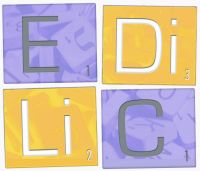Speaker
Description
The ACTIN (ACT and connect for INtegration) project, a European multidisciplinary consortium of universities and NGOs, builds on theoretical and applied expertise in language teaching and learning as well as intercultural communication. The project aims at bringing together researchers and practitioners, providing training of education stakeholders in evidence-based methods for language learning and intercultural competencies and upscaling (a) language learning activities and cultural awareness workshops to be implemented in formal education, and (b) extracurricular activities involving the whole community to be implemented in non-formal education settings.
In this presentation, key language learning protocols, appropriate for school-aged pupils and can be implemented across school subjects, will be presented. For vocabulary learning, these protocols include flashcards (Nugroho et al., 2012), pantomime (Andrä et al., 2020) and contextual cues (Olioumtsevits et al., 2022); for grammar learning, they also include processing instruction (VanPatten, 2015), dictogloss and running dictation (Olioumtsevits et al., 2023). An additional protocol, pedagogical translanguaging (PTL) (Cenoz & Gorter, 2021) aims at improving language and content competencies by addressing and deploying the learners' entire linguistic repertoire. PTL provides teachers with linguistically responsive instructional strategies that can positively impact vocabulary acquisition (Busse et al., 2020), foster a deeper understanding of content, including reading comprehension (Lewis et al., 2012; Williams, 1994), support the development of metalinguistic awareness (Leonet et al., 2020; Cenoz & Gorter, 2021), and enhance learners' self-awareness and motivation (Creese & Blackledge, 2010). Combining theoretical background with practice, the participants will be invited to create their own protocol.
Designed for diverse, multilingual classrooms, the protocols will be implemented by teachers receiving “ACTIN-organized training”, to promote linguistic and cultural integration. Teachers’ experiences will be gathered through pre- and post-training surveys. Additionally, the project will assess the attitudes and emotional impacts on migrant students (Franck & Papadopoulou, 2024) through questionnaires and focus group discussions.
Content/contenu/Inhalt 2
Das ACTIN-Projekt („ACT and connect for INtegration“), ein europäisches multidisziplinäres Konsortium von Universitäten und NGOs, baut auf theoretischer und praktischer Expertise im Lehren und Lernen von Sprache und interkultureller Kommunikation auf. Ziel des Projekts ist es, Forscherinnen und Praktikerinnen zusammenzubringen, Schulungen von Bildungsträgern in evidenzbasierten Methoden für das Sprachenlernen und interkulturelle Kompetenzen anzubieten sowie (a) Sprachlernaktivitäten und Workshops zum kulturellen Bewusstsein im formalen Bildungsbereich und (b) extracurriculare Aktivitäten für die gesamte Gemeinschaft im Rahmen nicht-formaler Bildungskontexten durchzuführen.
In diesem Workshop werden zentrale Sprachlernprotokolle vorgestellt, die für Schülerinnen im schulischen Alter geeignet und fächerübergreifend einsetzbar sind. Für das Vokabellernen umfassen diese Protokolle die Verwendung von Flashcards (Nugroho et al., 2012), Pantomimen (Andrä et al., 2020) und Kontextindikatoren (Olioumtsevits et al., 2022). Für das Grammatiklernen beinhalten sie Processing Instruction (VanPatten, 2015), Dictogloss und Laufdiktate (Olioumtsevits et al., 2023). Als weiteres Protokoll, zielt Pedagogical Translanguaging (PTL) (Cenoz & Gorter, 2021) darauf ab, Sprach- und Inhaltskompetenzen zu verbessern, indem das gesamte sprachliche Repertoire der Lernenden aktiviert und genutzt wird. PTL bietet Lehrkräften linguistisch responsive Unterrichtsstrategien, die das Vokabellernen positiv beeinflussen können (Busse et al., 2020), ein tieferes Verständnis von Inhalten, einschließlich des Leseverständnisses, fördern (Lewis et al., 2012; Williams, 1994), die Entwicklung des metasprachlichen Bewusstseins stärken (Leonet et al., 2020; Cenoz & Gorter, 2021) und das Selbstbewusstsein sowie die Motivation der Lernenden erhöhen (Creese & Blackledge, 2010).
Durch die Kombination von Theorie und Praxis werden die Teilnehmerinnen dazu eingeladen, eigene Protokolle zu entwickeln.
Die speziell für diverse, mehrsprachige Klassenzimmer entwickelten Protokolle sollen von Lehrkräften, die eine „ACTIN-Schulung“ erhalten haben, implementiert werden, um die linguistische und kulturelle Integration zu fördern. Die Erfahrungen der Lehrkräfte werden durch Prä- und Post-Fragebögen erfasst. Weiterführend wird das Projekt die Einstellungen und emotionalen Auswirkungen auf Kinder mit Migrationshintergrund (Franck & Papadopoulou, 2024) durch den Einsatz von Fragebögen und Fokusgruppendiskussionen untersuchen.
References
Andrä, C., Mathias, B., Schwager, A., Macedonia, M., & von Kriegstein, K. (2020). Learning foreign language vocabulary with gestures and pictures enhances vocabulary memory for several months post-learning in eight-year-old school children. Educational Psychology Review, 32(3), 815-850.
Busse, V., Cenoz, J., Dalmann, N., & Rogge, F. (2020). Addressing linguistic diversity in the language classroom in a resource‐oriented way: An intervention study with primary school children. Language Learning, 70(2), 382-419.
Cenoz, J., & Gorter, D. (2021). Pedagogical translanguaging. Cambridge University Press.
Creese, A., & Blackledge, A. (2010). Translanguaging in the bilingual classroom: A pedagogy for learning and teaching? The Modern Language Journal, 94(1), 103–115.
Franck, J., & Papadopoulou, D. (2024). Pedagogical Translanguaging in L2 Teaching for Adult Migrants: Assessing Feasibility and Emotional Impact. Education Sciences.
Leonet, O., Cenoz, J., & Gorter, D. (2020). Developing morphological awareness across languages: Translanguaging pedagogies in third language acquisition. Language awareness, 29(1), 41-59.
Lewis, G., Jones, B., & Baker, C. (2012). Translanguaging: developing its conceptualisation and contextualisation. Educational Research and Evaluation, 18(7), 655–670.
Nugroho, Y. S., Nurkamto, J., & Sulistyowati, H. (2012). Improving students’ vocabulary mastery using flashcards. English Education, 1(1).
Olioumtsevits, K., Papadopoulou, D., & Marinis, T. (2022). Vocabulary Teaching in Refugee Children within the Context of the Greek Formal Education. Languages, 8(1), 7.
Olioumtsevits, K., Papadopoulou, D., & Marinis, T. (2023). Second language grammar learning in refugee children: Is group dictation an effective teaching technique?. Pedagogical Linguistics, 4(1), 50-76.
VanPatten, B. (2015). Foundations of processing instruction. International Review of Applied Linguistics in Language Teaching, 53(2), 91-109.
Williams, C. (1994). Arfarniad o Ddulliau Dysgu ac Addysgu yng Nghyd-destun Addysg Uwchradd Ddwyieithog, [An evaluation of teaching and learning methods in the context of bilingual secondary education]. Unpublished Doctoral Thesis (University of Wales, Bangor).
| Title/ titre/Titel 2 | Integration durch Sprachenlernen und kulturelles Bewusstsein stärken: Das ACTIN-Projekt |
|---|

